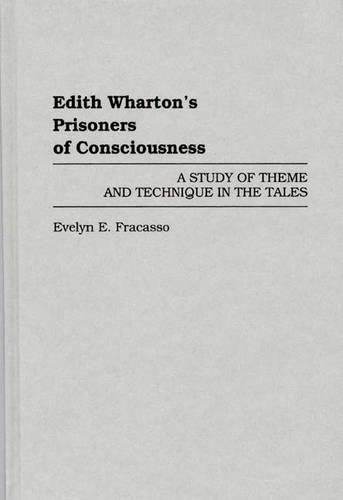
Edith Wharton's Prisoners of Consciousness: A Study of Theme and Technique in the Tales
(Hardback)
Publishing Details
Edith Wharton's Prisoners of Consciousness: A Study of Theme and Technique in the Tales
By (Author) Evelyn E Fracasso
Bloomsbury Publishing PLC
Praeger Publishers Inc
30th March 1994
United States
Classifications
Tertiary Education
Non Fiction
Literary studies: c 1900 to c 2000
Literary studies: c 1800 to c 1900
813.4
Physical Properties
Hardback
152
Description
The metaphor of life as prison obsessed Edith Wharton, and, consequently, the theme of imprisonment appears in most of her 86 short stories. In the last several decades, critical studies of Wharton's fiction have focused on this theme of imprisonment, but invariably it is related to biographical considerations. This study, however, is not concerned with such insights and influences; rather, it concentrates on Wharton's skill as a craftsman in consciously and carefully fitting her narrative techniques to the imprisonment theme. Representative tales from Wharton's early period (1891-1904), her major phase (1905-1919), and her later years (1926-1937) have been examined and divided into four categories: individuals trapped by love and marriage, men and women imprisoned by the dictates of society, human beings victimized by the demands of art and morality, and persons paralyzed by fear of the supernatural.
Reviews
Although not all of Wharton's tales concern imprisonment, some do and Fracasso has brought them to light with a knowledgeable hand.-Choice
"Although not all of Wharton's tales concern imprisonment, some do and Fracasso has brought them to light with a knowledgeable hand."-Choice
Author Bio
EVELYN E. FRACASSO is currently Professor of English at Quinnipiac College in Hamden, Connecticut. She is the author of articles on Edith Wharton, Willa Cather, Joan Didion, and William Faulkner.
